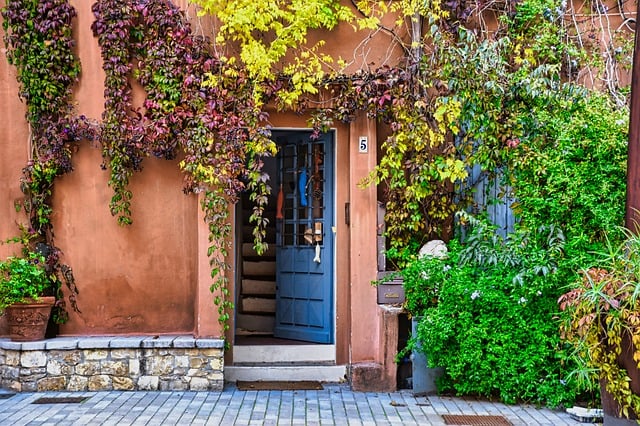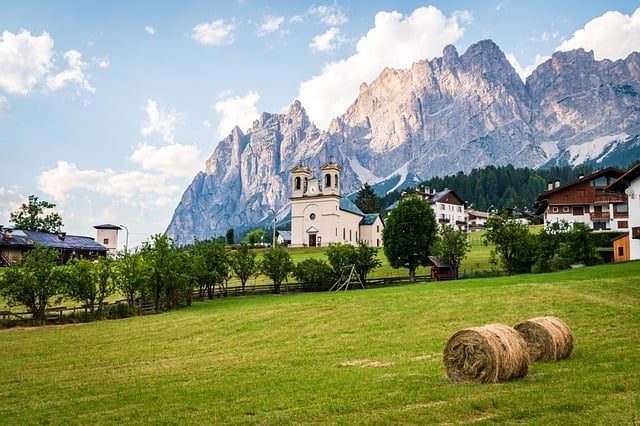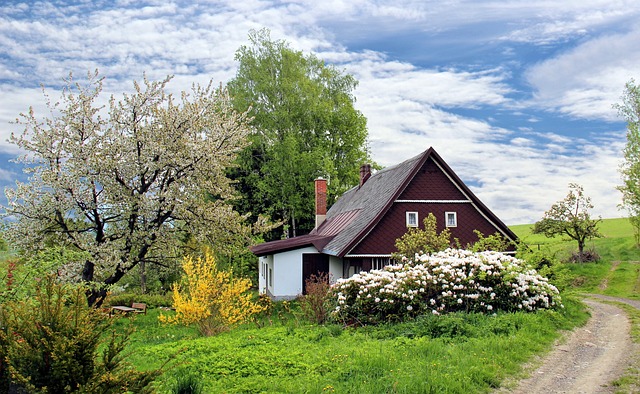House sitting is a cost-effective and community-engaging housing solution for travelers like snowbirds, offering them rent-free stays in exchange for caring for homes and possibly pets or gardens. This mutually beneficial arrangement provides an authentic local experience while ensuring property maintenance. Prospective house sitters should create detailed profiles on online platforms dedicated to house sitting, highlighting their qualifications and reliability. Legal awareness is crucial, with both parties needing to understand tenant rights and insurance coverage to ensure compliance and security. Successful house sitting demands diligent preparation, transparent communication with homeowners, and a commitment to maintaining the property's integrity. By adhering to these principles, travelers can enjoy extended stays without the financial burden of traditional accommodations, while homeowners have confidence that their properties will be well-maintained in their absence. House sitters should also be aware of legal and insurance aspects to navigate temporary occupancy legally and securely. This ensures a symbiotic relationship where both parties benefit from shared resources within property care.
Explore the transformative world of house sitting, a practical and cost-effective solution for snowbirds and globe-trotters seeking to extend their travel experiences without the hefty price tag of traditional accommodations. Our comprehensive guide demystifies house sitting, offering insights into its multifaceted benefits. From securing a cozy retreat in a sun-drenched locale during winter months to ensuring your personal sanctuary remains safe and sound while you traverse the globe, this article navigates the essential steps for successful home management. Learn how to align your house sitting assignment with your travel aspirations, understand the legalities and insurance necessities, and embrace the responsibilities that promise both trust and tranquility. Join us as we delve into the art of house sitting, where adventure meets affordability for the intrepid snowbird and traveler.
- Understanding House Sitting: A Comprehensive Guide for Snowbirds and Travelers
- The Benefits of House Sitting for Snowbirds: A Cost-Effective Alternative to Traditional Lodging
- Preparing to Be a House Sitter: Essential Considerations for Prospective Snowbird and Traveler Home Managers
- Finding the Perfect House Sitting Assignment: Tips for Snowbirds and Travelers to Match Their Needs
- The Responsibilities of a House Sitter: Ensuring Peace of Mind for Homeowners and Safety for Property
- Legalities and Insurance: What Snowbirds and Travelers Need to Know Before House Sitting
Understanding House Sitting: A Comprehensive Guide for Snowbirds and Travelers

House sitting offers a unique opportunity for snowbirds and travelers seeking to extend their travel periods without the constraints of traditional accommodations. As a house sitter, one gains access to free accommodation in exchange for maintaining the home and its surroundings as if it were their own residence. This arrangement can be particularly beneficial for snowbirds who wish to migrate seasonally between climates without the commitment of renting or purchasing properties in multiple locations. For travelers, house sitting allows for an immersive local experience, providing a chance to live like a local and often care for pets or gardens, which can add a layer of responsibility and fulfillment to their travels.
When considering house sitting, it’s crucial to research extensively and understand the various platforms available that facilitate these opportunities. House sitters must create detailed profiles showcasing their skills, experiences, and trustworthiness. Snowbirds and travelers should also be aware of the legalities and responsibilities involved in house sitting, including understanding tenant rights if applicable, insurance coverage, and maintaining security within the home. Proper preparation, clear communication with homeowners, and a commitment to upholding the property are key to a successful house-sitting arrangement. By doing so, both parties can enjoy the benefits of this symbiotic relationship, with snowbirds and travelers gaining free accommodation and homeowners having peace of mind that their homes and pets are being well cared for in their absence.
The Benefits of House Sitting for Snowbirds: A Cost-Effective Alternative to Traditional Lodging

House sitting presents a multitude of advantages, particularly for snowbirds and travelers seeking a cost-effective lodging alternative. Unlike traditional accommodations such as hotels or rentals, house sitting allows individuals to live in a local residence at little to no cost, offering significant savings on housing expenses. This arrangement is mutually beneficial: homeowners gain peace of mind knowing their property is cared for in their absence, while sitters enjoy the comforts and conveniences of home without the financial burden. Snowbirds can extend their seasonal travels by avoiding the higher costs associated with temporary accommodations during peak seasons, thus making their travel more sustainable financially. Moreover, house sitting immerses sitters in the community, providing an authentic experience that renting a property from afar cannot match. This intimate connection with the locale enriches the travel experience, allowing snowbirds to truly settle into their temporary surroundings, as if they were home, and often with access to pets, which can be a deciding factor for many animal lovers. The savings on accommodation can then be allocated to other aspects of the trip, enhancing overall satisfaction and enjoyment during their travels.
Preparing to Be a House Sitter: Essential Considerations for Prospective Snowbird and Traveler Home Managers

When considering the role of a house sitter, particularly for snowbirds and travelers who seek assurance that their homes are well-maintained in their absence, preparation is key. Prospective home managers must approach the task with diligence and a clear understanding of the responsibilities involved. To begin, it’s crucial to develop a comprehensive checklist that covers all maintenance tasks, including routine chores like watering plants, collecting mail, and securing the property. House sitters should also familiarize themselves with the home’s unique systems, such as heating and cooling, alarms, and any smart home technology, to ensure they can operate these effectively during the homeowners’ absence.
Moreover, house sitters must establish clear communication channels with the homeowners for any questions or concerns that may arise. This includes obtaining all necessary contact information, understanding the protocol for emergencies, and having a comprehensive written agreement that outlines duties, expectations, and compensation. Trustworthiness, reliability, and a proactive approach to house sitting are paramount, as is an ability to adapt to different environments and home technologies. By preparing thoroughly and maintaining open lines of communication, prospective snowbird and traveler home managers can provide peace of mind and a level of service that upholds the integrity of the homes they tend to while their owners enjoy their travels.
Finding the Perfect House Sitting Assignment: Tips for Snowbirds and Travelers to Match Their Needs

When embarking on a house sitting journey as a snowbird or traveler, matching the right assignment to your individual needs is paramount for a seamless and enjoyable experience. House sitting offers a unique opportunity to live like a local, maintain a consistent routine, and care for a home and its pets while their owners are away. To find the perfect house sitting gig, consider these tailored tips:
Start by defining your preferences and requirements. Are you looking for a coastal retreat or a mountain getaway? Do you prefer a pet-friendly assignment, and what type of pets are you comfortable with? Establishing clear criteria will help narrow down your options. Utilize reputable house sitting platforms and join local house sitting groups to explore various opportunities. Create a detailed profile highlighting your skills, experience, and any certifications that might be relevant, such as pet first aid or specific maintenance abilities.
Communication is key when liaising with homeowners. Be transparent about your expectations and availability. Ask questions to understand the responsibilities involved and the level of care required for the property and pets. Ensure you’re comfortable with the tasks expected of you, and don’t hesitate to discuss any concerns with potential hosts. House sitting can range from short-term gigs to long-term assignments, so decide what fits your travel plans best. By carefully considering these aspects and leveraging online resources, snowbirds and travelers can find a house sitting assignment that caters perfectly to their lifestyle and travel aspirations.
The Responsibilities of a House Sitter: Ensuring Peace of Mind for Homeowners and Safety for Property

House sitting is a mutually beneficial arrangement where a responsible individual, known as a house sitter, temporarily lives in a homeowner’s residence while they are away, typically for extended periods. This practice offers peace of mind to homeowners who trust their property and prized possessions to a vigilant caretaker. The responsibilities of a house sitter extend beyond mere occupancy; they encompass a range of security and maintenance tasks that ensure the safety and integrity of the property are maintained throughout the owner’s absence.
A dedicated house sitter acts as a live-in guardian, safeguarding against potential break-ins by making the home appear occupied. They manage daily routines such as watering plants, collecting mail to avoid a cluttered appearance that might signal an unattended home, and maintaining the property’s temperature to prevent damage from extreme weather conditions. Additionally, house sitters are expected to address any urgent issues that may arise, like a leaky pipe or a power outage, to mitigate potential water or electrical damages. They also provide detailed reports upon the homeowner’s return, offering an account of the property’s condition and any occurrences during their tenure, thus ensuring transparency and trust in the house-sitting relationship.
Legalities and Insurance: What Snowbirds and Travelers Need to Know Before House Sitting

When embarking on the role of a house sitter, especially for snowbirds and travelers who are often away for extended periods, it’s crucial to address the legalities and insurance considerations that ensure both the property and the sitter are adequately protected. Firstly, understanding the local laws regarding house sitting is essential. Different regions have varying regulations that govern temporary occupancy, lease agreements, and tenant rights. Snowbirds and travelers must confirm that their absence will not violate any rental or occupancy agreements. Additionally, they should ensure that the homeowner has the legal right to authorize someone to live in the property while they are away.
Secondly, insurance is a critical aspect of responsible house sitting. Homeowners should verify with their insurance provider that their policy covers temporary absences and house sitting arrangements. This typically includes confirming whether there is liability coverage for any potential accidents or damages that may occur during the sitter’s tenure. For the house sitter, obtaining renters’ insurance is a prudent step to safeguard personal belongings and against liability claims. Snowbirds and travelers should also consider supplementary insurance options tailored for long-term house sitting engagements, which may include coverage for property damage or theft that standard homeowners’ policies might not fully address when the home is unoccupied for prolonged periods. Understanding these legal and insurance aspects is paramount for a smooth and secure house-sitting experience for both the homeowner and the sitter.
When considering the nomadic lifestyle of snowbirds and travelers, house sitting emerges as a mutually beneficial arrangement that offers both property caretakers and homeowners considerable advantages. As outlined in this article, house sitting is not just about safeguarding an empty home; it’s a cost-effective solution for seasonal wanderers seeking authentic local experiences without the overhead of traditional accommodations. Prospective house sitters can prepare for their role by understanding the responsibilities and considerations that come with managing a household in absentia. By carefully selecting a house sitting assignment through reputable platforms or personal networks, one can ensure a match that aligns with their preferences and needs. It’s crucial for both snowbirds and travelers to be aware of the legalities and insurance requirements to navigate this arrangement smoothly and securely. In essence, house sitting is a symbiotic approach to travel that offers a unique perspective on living like a local, while providing peace of mind for homeowners. With careful planning and due diligence, house sitting can be a rewarding experience for those who embrace the wanderlust without relinquishing the comforts of home.
